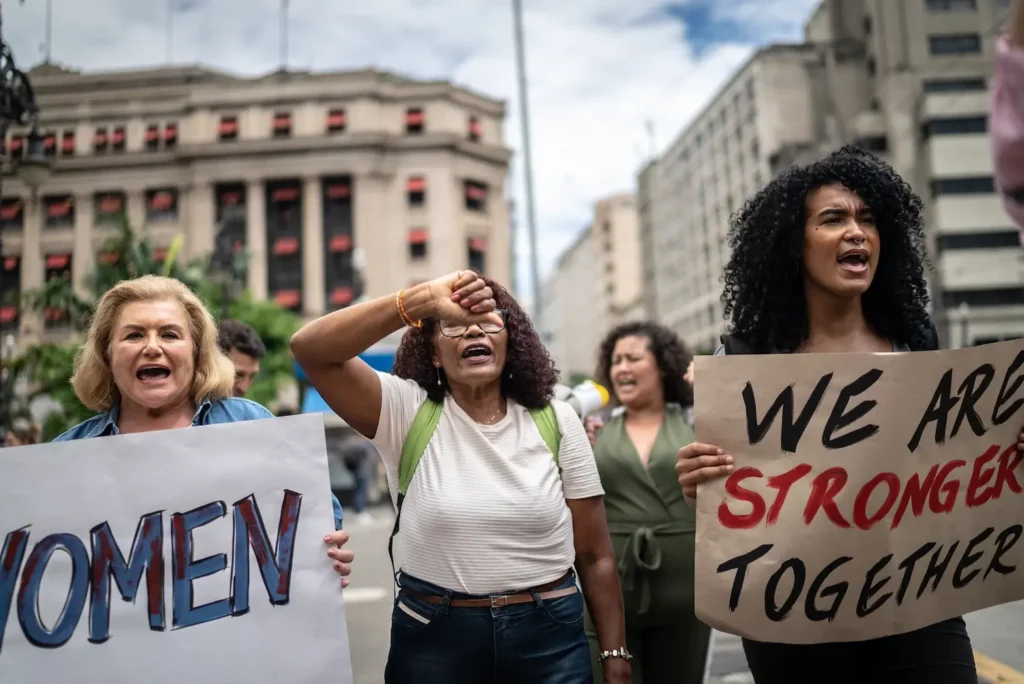There was occasional tension during the wedding planning process when my husband and I got married, but overall everything went pretty smoothly.
Ironically, it wasn’t until a few weeks after our wedding that I was faced with a wedding crisis.
I still remember the day I received that fateful phone call. I saw our wedding photographer’s name appear on my phone and I answered, full of excitement, imagining our special day being timelessly captured.
“Hey Liz… I’m not really sure how to say this, and I’m so very sorry… something, um… something went wrong with my camera and… well, my memory cards completely corrupted… Liz, um… I’m so sorry. Some of the pictures came through, but…”
I didn’t even hear the rest of the sentence. I was devastated.
As the weeks passed, I grieved the fact that I wouldn’t have those pictures to reflect on: my mother helping me into my dress, our wedding party sharing smiles and moments of love and connection, my husband and I in those cheesy but ever-so-special portraits, moments after we made our lifelong commitment to each other.
My husband, being the pragmatic and logical man he is, handled the situation differently. He was frustrated, no doubt, but he didn’t seem to experience the same kind of desperation I did. He explored potential solutions: Could the photographer find some way to retrieve the photos? Could we just ask all of our friends and family to send us the photos they captured from their cameras and phones?
It wasn’t until one day in a grocery store parking lot that he said something that actually made me feel better.
I was expressing how upset I was about the lost photos. Naturally, my husband responded to each complaint with some form of “well, we can always have new ones taken later” or, “at least we got some of the pictures back”.
Then, he stopped, turned, and said, “You know what? I’m sorry. You’ve been talking about how upset you are about this whole thing and I keep minimizing your feelings because I don’t know what I can do or say to fix it. But you’re right – this really, truly sucks. And I’m sorry. I love you.”
It was strange. And it was wonderful.
Those ten seconds of empathy were all I needed to feel better. I just needed someone, especially my husband, to acknowledge the grief I was having over the lost pictures and memories. And when he did, it made a world of difference.
Dr. John Gottman has continuously affirmed the power of showing up for your partner emotionally. In his own words: “Masters of relationships adopt the motto that when you’re hurting, baby, the world stops and I listen.”
Whether it’s stress about how much money to spend, who to invite, what to wear, or where to get married, all premarital couples will find their patience tested in one way or another during the wedding planning process. When stress compounds, one or both partners can feel completely overwhelmed, disconnected, and misunderstood.
Here’s the truth: At the end of the day, your wedding is not about the photos.
It’s about the deeper questions of, “Will you be there for me when I’m upset? When I’m stressed? When I’m disappointed?”
These difficult moments are opportunities to show up for your partner in times of need.
We long for security, certainty, and connection in our relationship. When we experience a stressful event (like my photo crisis), we may question the emotional certainty of our bond if our partner doesn’t show up for us.
Your marriage will have moments when your partner is struggling with something and you won’t know how to fix it. The simple truth is that practicing empathy and understanding will help them more than trying to solve the problem ever will. Here are three practical ways to do this:
- When your partner comes to you with a frustration, concern, or is just upset about something, stop and listen. Be interested. Say, “You seem upset. What’s going on?”
- Paraphrase what your partner shares by saying, “So what I’m hearing you say is ____” and repeat back your understanding of what you heard them say. Check for accuracy. Let them clarify.
- Don’t be a problem solver. Let go of your agenda. If you have a potential solution or feedback, check in with your partner to see if they are in a place to hear it. You might say, “I’ve got a couple of ideas that may help with the situation, do you want to hear them?” Remember, it’s not personal if they don’t. They just aren’t ready.
In his book What Makes Love Last?, Dr. Gottman explains that your role as a listener is to understand your partner’s point of view, respond non-defensively, and practice empathy. Problem solving comes after understanding, not before, otherwise any proposed solution will create disconnection and resentment.
So, learn to show up for your partner. Day after day.
As you continue forward on your wedding planning and marital-preparation journey, be mindful of the opportunities to connect with your partner. These connection opportunities may come in the form of crisis, stress, and frustration, but if you can learn to utilize them in positive ways, you will be actively setting up your marriage for long-term success.
Are you getting ready to tie the knot? Subscribe below to receive our groundbreaking findings from studying thousands of couples over the last 40 years directly to your inbox.








